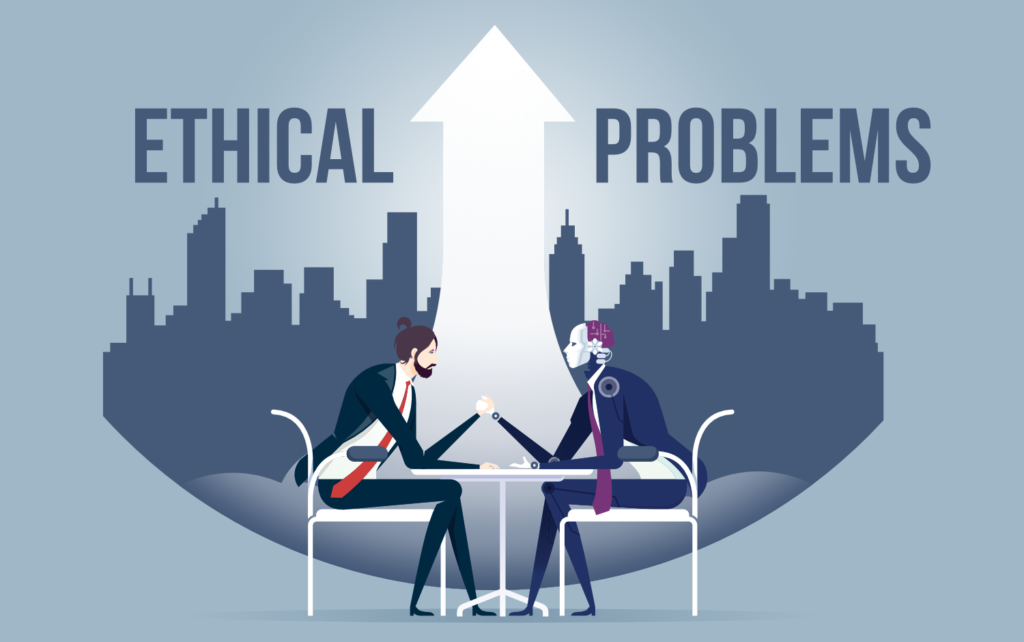Computers in our lives are getting smarter every day. They are able to do more and smarter things than what we humans can do. Many people wonder what the possible ethical implications are with Artificial Intelligence or AI technology. Should we allow a supercomputer to decide what is right or wrong? How will that affect us as individuals, as a society, and in the world as a whole? This article seeks to find the ethical dilemma of artificial intelligence and provide you with an answer.
Computers in our lives are getting smarter every day. They are able to do more and smarter things than what we humans can do. Many people wonder what the possible ethical implications are with Artificial Intelligence or AI technology. Should we allow a supercomputer to decide what is right or wrong? How will that affect us as individuals, as a society, and in the world as a whole? This article seeks to find the ethical dilemma of artificial intelligence and provide you with an answer.
Currently there are ethical concerns about a company called Deep Root, who developed an artificial intelligence system called “The Narrow Channel”. The developers of the software chose to name their new program after a well-known character from a book called “A journey to the Center of the Mind”. The creators of the artificial intelligence system claimed that the character of the book is similar to their own personality, hence why the character was placed inside of a mind channel – to allow him/her to make hard decisions. While this particular artificial intelligence system might be unique in that respect, the ethical quandary it presents becomes a more complicated issue.
What is a mind? In basic terms, computers are programs that store data and memories and send signals to other computers to make decisions. Today, computers are so much more advanced than that. Today, the potential for a computer to take an ethical decision about something as simple as which employee should get the bonus has already been explored.
Will this artificial intelligence to create a future where everyone is forced to share their thoughts, feelings, and emotions or will individual privacy be protected? Many believe that if we allow artificial intelligence to make ethical decisions then we will end up with a world full of artificial beings with no personal awareness of how they make decisions. Some also fear that we could soon have robotic individuals, which will mean that every human on the planet would be a machine. While some might see such fears as overreacting, others believe that it is simply the natural progression of technology. Whether you believe such fears are real or not, it is important to consider the possible ethical implications of artificial intelligence in human decision making.
The first question one might ask is whether or not anyone has the right to change or alter the pre-existing software. In the event that a person purchases a new PC or laptop, they generally have the right to install whatever they wish. The problem arises if someone wishes to customize the hardware or modify the software. If you were to modify the existing software then it would be difficult to retrieve that information if the new laptop or PC was stolen or destroyed.
While it is nearly impossible to come up with a computer program that will never make an unethical decision, artificial intelligence is still relatively new. With that said, the concern over creating artificially intelligent software that is unethical is nothing new. It is up to the creators of the programs to ensure that they remain ethically aligned.











More Chintu Stories
How to solve the problem of the Canon Printer Printing Printing page?
How to solve [pii_email_316cb5e2e59f1ce78052] error?
How to Fix Outlook [pii_email_9ba94c086590853d8247] Error Code